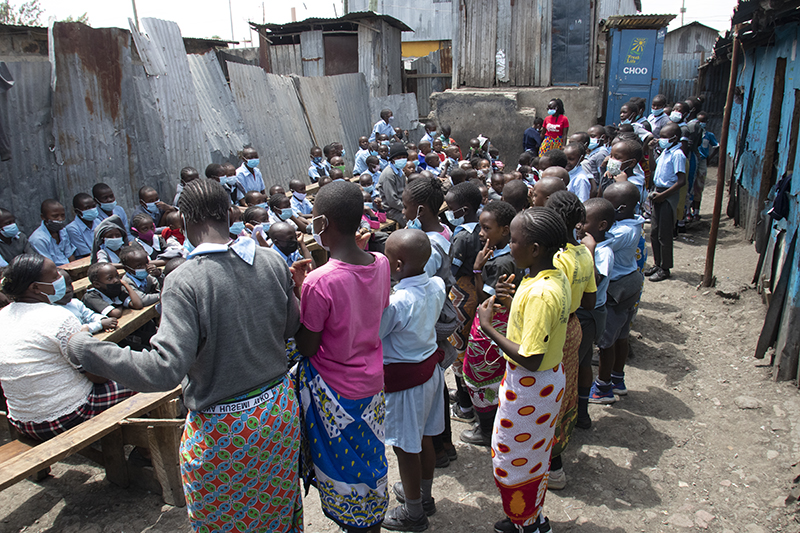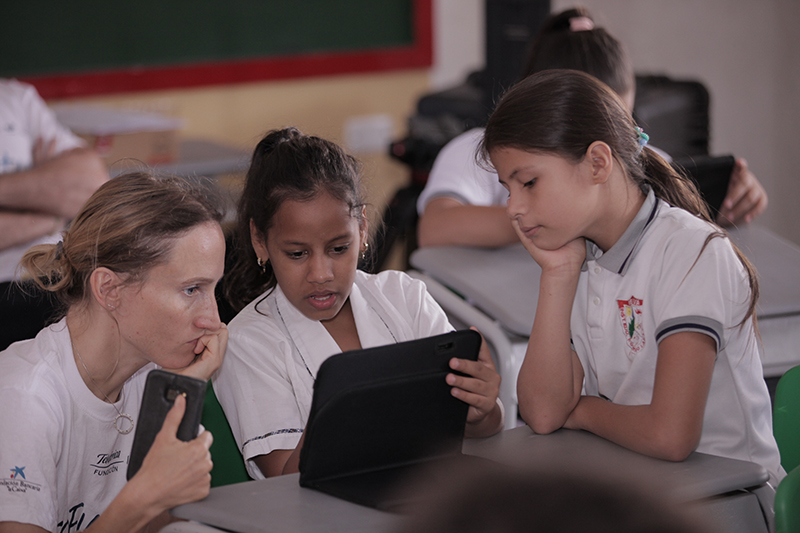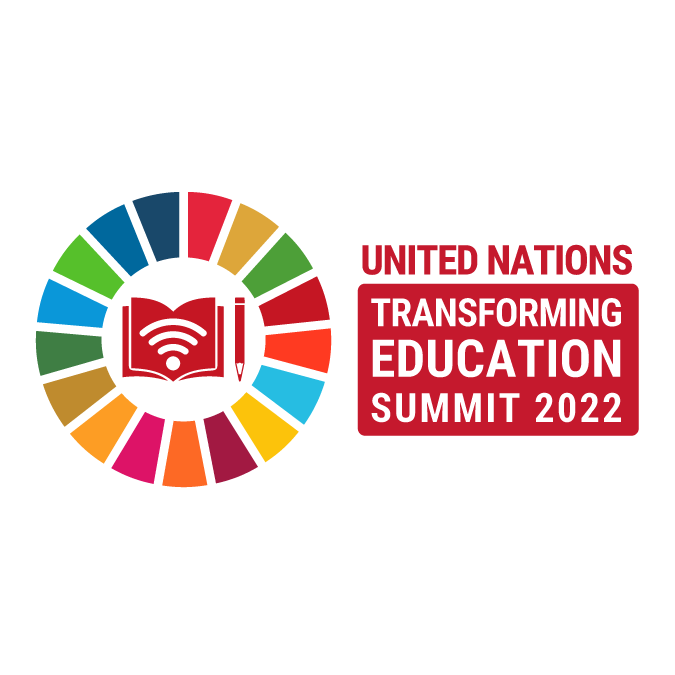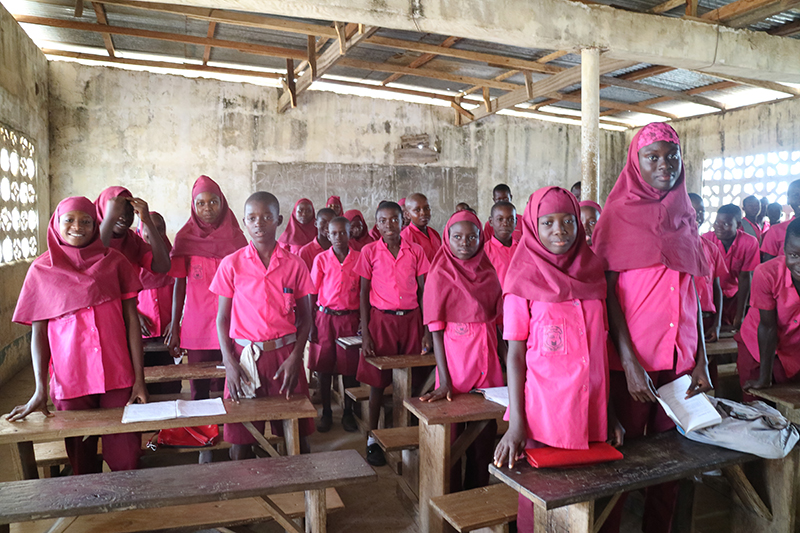“If you think education is expensive, try ignorance”. This well-known phrase, attributed to former Harvard University Chancellor Derek Bok, is a very graphic way of expressing what common-sense and economic studies have been telling us for years: quality education is the best investment a country can make for its future and its people.
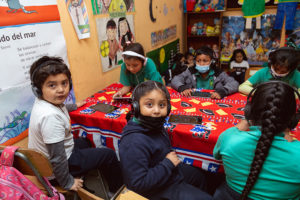
This is truer today than ever before, as the world is facing major challenges that threaten its future and that can only be tackled through education: climate change, widening economic and social inequalities, increasing social and political violence…
2023 marks the halfway point on the road to the 2030 Agenda for Sustainable Development. Eight years have passed since the strategy was presented and we have another seven years to achieve the goals and objectives set. Seventeen goals and one of them, education, as the most powerful catalyst for accelerating the achievement of all the others and thus the development of all nations.
In this context, for another year, and this will be the fifth, the United Nations celebrated International Education Day, under the theme “Invest in people, prioritise education”. This year’s celebration aims to build on the global momentum generated by the last World Summit on Education Transformation Summit where the international community renewed its commitment to ensuring inclusive, equitable and quality education for all, and urges us to take urgent action.
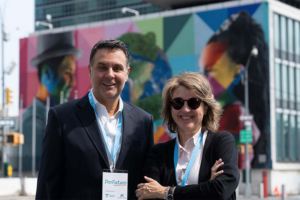
ProFuturo, which had the privilege of participating and sharing its experience at this international forum has evidence of the transformative power that digital education offers in environments where access to a quality, memorable and personalised learning experience for each child is more difficult. We have been able to observe how, in different geographical locations, the existence of a digital classroom has led to significant changes such as a decrease in school drop-out and absenteeism rates, an increase in motivation to go to school and pay attention in class, and an improvement in children’s digital skills, their teachers and their families.
Education is the most powerful catalyst for accelerating the achievement of all the others and thus the development of all nations.
But if we want every child and young person on the planet to have the right to a quality education, there is still a long way to go. A path that begins with a commitment: the firm commitment of all of us to the substantial transformation of our education systems. This transformation involves:
Integrating technology into the teaching and learning process. The application of technology to education in vulnerable environments can help to overcome many of the major access, equity, inclusion and quality issues facing education systems in many countries. However, we must never forget that technology is a means and not an end in itself and that, if it is to serve the purpose of bridging educational divides, “digital pedagogy” and the related teacher training must lie at the centre of our vision.
Re-imagining the classroom. We need to turn around the way students actually learn. We need educational experiences that put the learner at the centre. No more education conceived solely as a lecture where the teacher talks and the student listens. We need active pedagogies, which focus on the learner and thus make them an active part of their learning.
Incorporating new skills. Because, along with the way we learn, we must change the things we learn. Because at the same time as learning to read, write and do basic arithmetic, students must develop digital skills and competences such as critical thinking, communication, creativity, problem-solving and teamwork, which will make it much easier for them to function in today’s and tomorrow’s societies.
Reinventing the teaching profession. As we have said, today more than ever, we need trained teachers who go far beyond the old-fashioned model of merely conveying knowledge. New technologies in education offer enormous potential to accelerate learning and make it more accessible to all. However, one thing is clear: if teachers are not trained to use these technologies, we will not be able to take advantage of the enormous potential of digital education. We need digital teachers with specific skills to put technology at the service of the pedagogical model and introduce it into the classroom in order to improve the quality of teaching. Bringing technology into education is not an automatic nor simple process: it comes with the challenge of training a new professional, a new teacher who knows how to incorporate these technologies into their pedagogical skill in order to promote learning in their students.
Investing more and better. Such a transformation requires, of course, substantial investment. And this, in the current context of budgetary restrictions in many countries around the world, must be accompanied by large doses of ingenuity and creativity to help us maximise the impact of every euro invested. One way to do this is by fostering and encouraging public-private partnerships, which have already played a key role in many aspects of the digital transformation of education, such as finding solutions for connectivity, content production, the development of digital platforms and teacher training. Data intelligence, of course, can also do much to optimise spending, helping us not only to analyse and improve learning outcomes but also to make intelligent and informed decisions. Moreover, at the global level, data will help us not to “reinvent the wheel” and to have a data-driven innovative approach: to become a true learning organisation that tests new procedures and collects data on them in order to adapt their implementation.
If we want every child and young person on the planet to have the right to a quality education, there is still a long way to go. And that road begins with the firm commitment of all of us to the substantial transformation of our education systems.
Achieving our goal of “leaving no one behind in excellent education” requires multiple pathways and formulas. It is an urgent need for governments and public administrations, for education systems as a whole, for third sector organisations, for corporate foundations such as ours and, above all, for civil society, for families and communities that also assume their transformative role. It is impossible to make progress on something that is the backbone of our societies and cultures if we are not all united in the same cause. Our future as humanity depends on the talents of each of its members, as individuals and communities, and in this we must invest. Putting education at the top of political, economic and cultural agendas means investing in people, in equal rights, in justice, in sustainability, in a commitment to peace and, ultimately, in a future that is more enlightening than our present.



